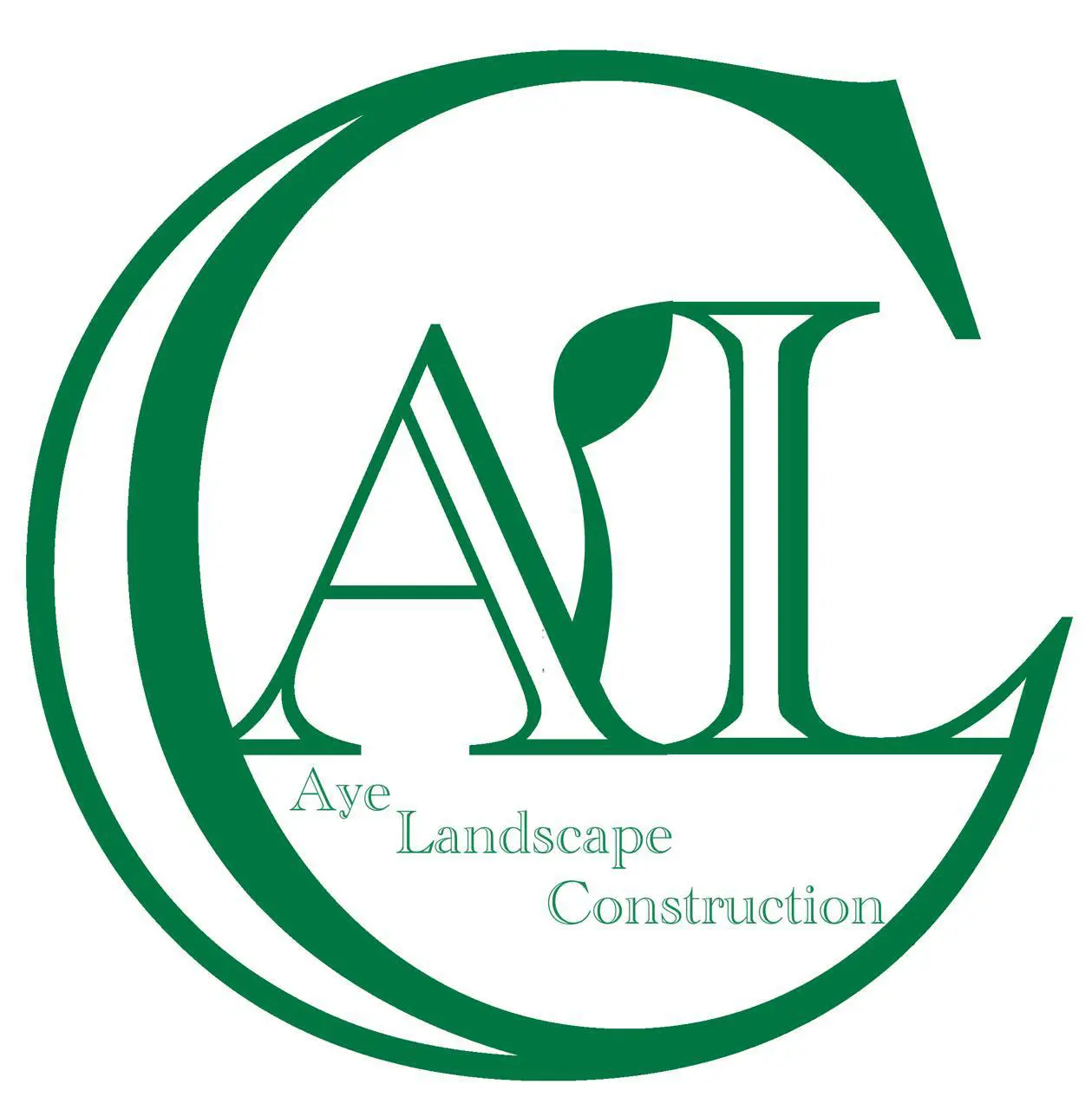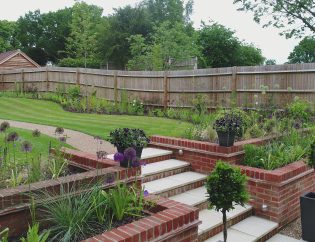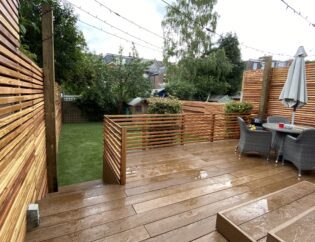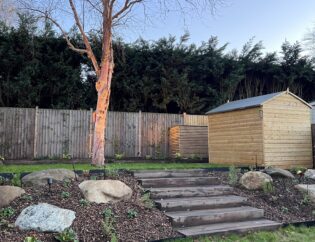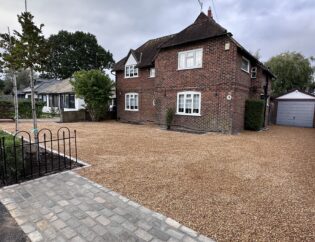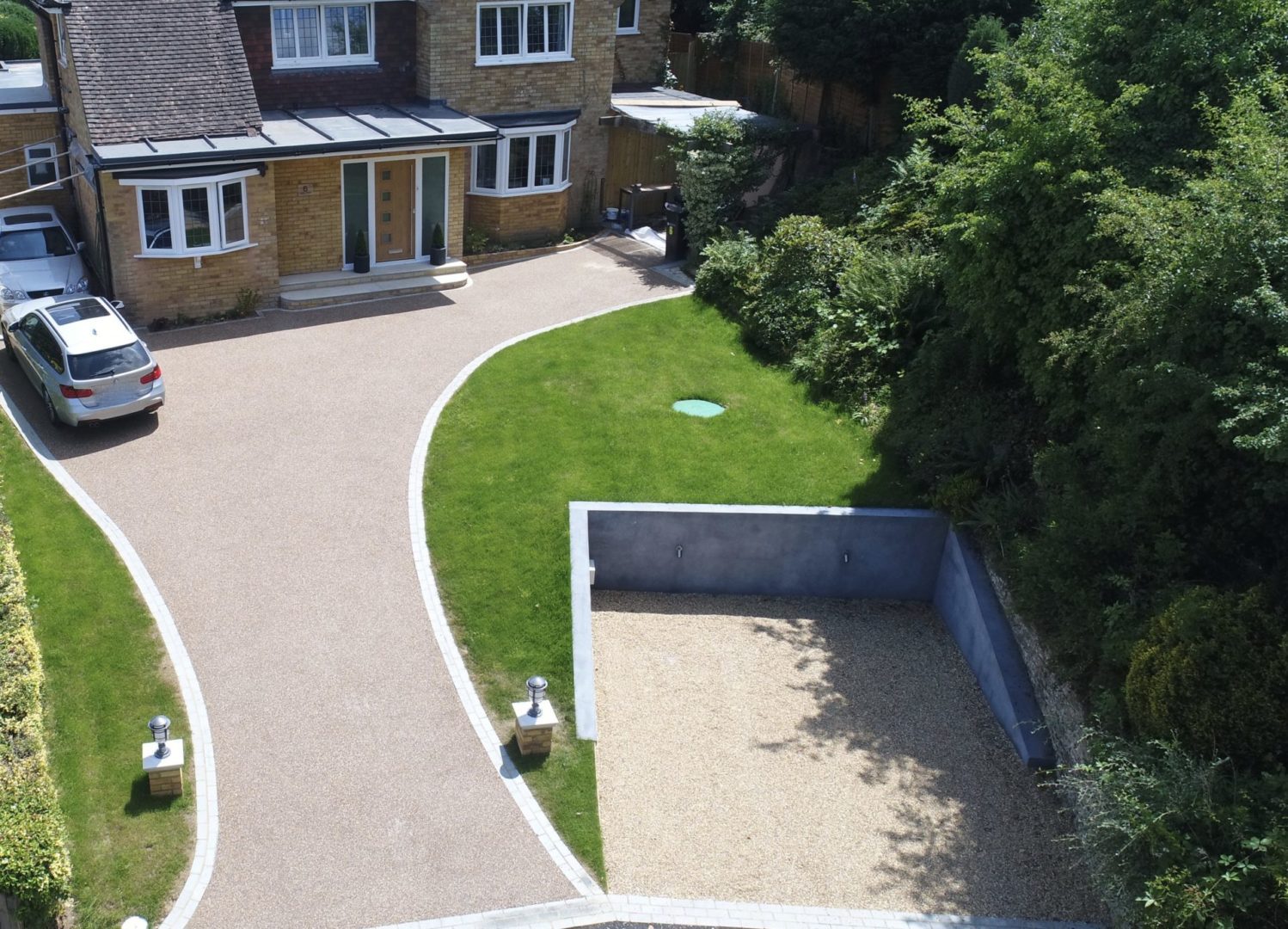
Gravel vs resin bound
Do you want to know the difference between a loose gravel surface and a resin-bound surface? If you need a little help deciding on the best material for your new driveway, you’re in the right place!
Your driveway is more than a functional space for parking your car. It’s also the first impression visitors have of your home. When it comes to enhancing curb appeal, gravel and resin-bound driveways have gained popularity for their looks and durability. In this post, we look at the key differences between these two types of driveways, to help you make an informed decision.
Composition and installation
Gravel driveways:
Gravel driveways consist of loose stones and aggregates that are spread over a prepared base. These stones vary in size, shape, and colour, offering a range of different looks. The installation involves excavation, creating a solid foundation, and evenly spreading the gravel. Gravel driveways are relatively easier and quicker to install compared to other options. They are also easier to top up or extend as your landscaping plans develop over the years.
Resin-bound driveways:
Resin-bound driveways are a blend of natural aggregates and clear resin. The aggregates are mixed with the resin and then laid on a prepared surface. They can even be laid on existing asphalt (which is not something you can do with gravel, as it will cause tyres to spin). The mixture is carefully trowelled to achieve a smooth, level finish. The curing process ensures a solid, durable surface. Resin-bound driveways require professional installation due to the specific techniques involved.
Happily, here at Aye Landscape Construction we are approved SureSet installers. We know a lot about SureSet’s products and can advise on everything you need to know about installing their products in your landscaping project.
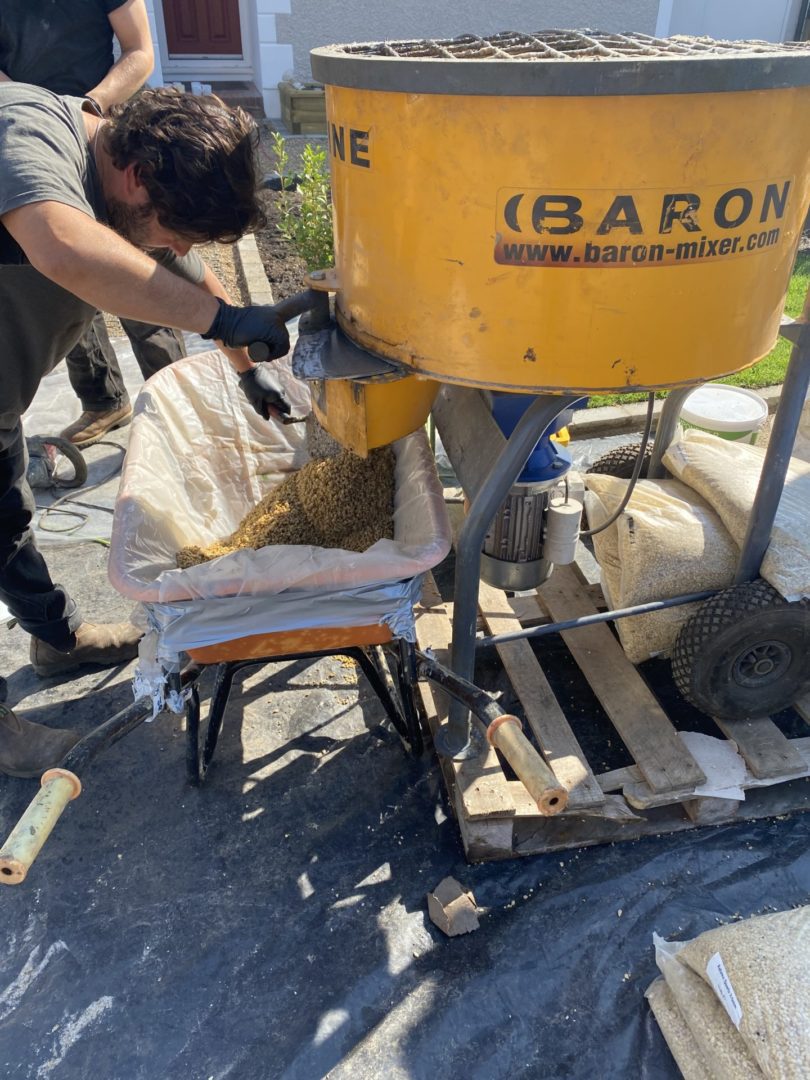
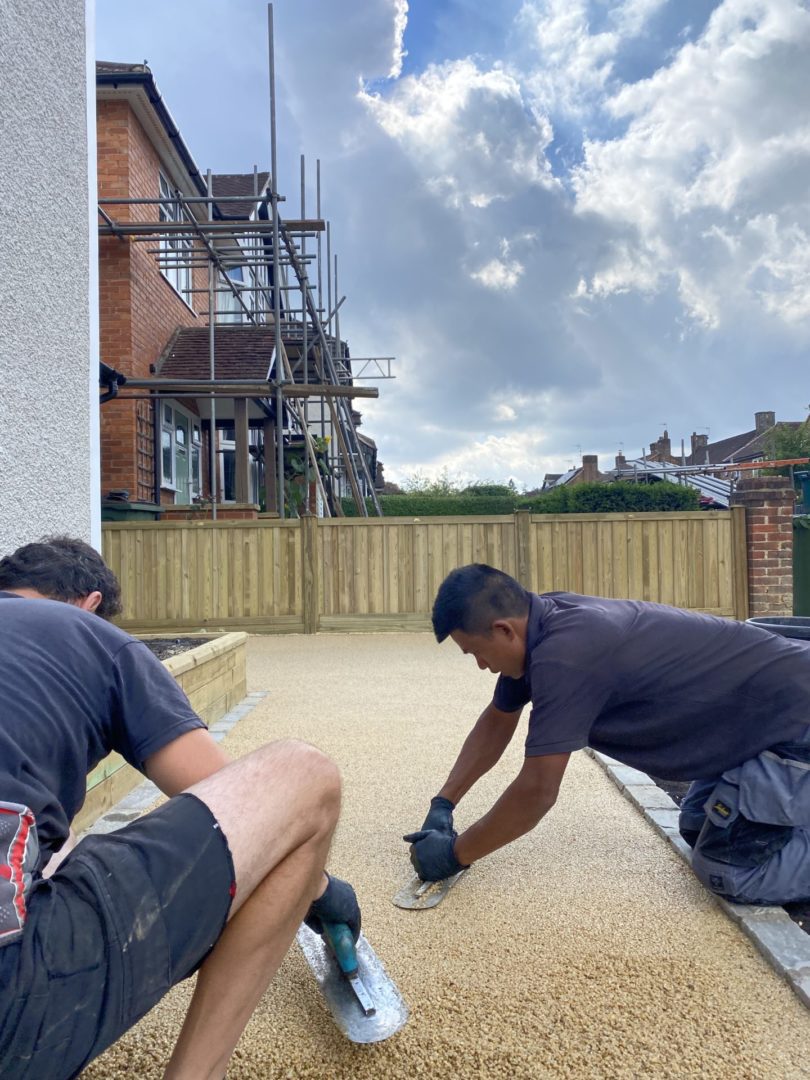
Aesthetic appeal
Gravel driveways:
Gravel driveways offer a rustic and natural look, adding character to your property. Gravel is a traditional material that has been popular since the 18th century. The variety of colours and textures available allows you to choose a gravel type that complements the architectural style of your home. Gravel also allows for easy blending with surrounding landscaping, creating a harmonious outdoor space. However, because of this traditional, rustic look, a gravel driveway may not give the contemporary, “wow factor” that you are looking for.
Resin-bound driveways:
On the other hand, resin-bound driveways have a sleek and more modern appearance. The clear resin binds the aggregates together, creating a smooth and seamless surface. With resin-bound driveways, you also have a wide range of aggregate colours and sizes to choose from, to match your design preferences. The smooth finish also ensures that there are no loose stones or uneven surfaces.
Resin-bound driveways are a popular choice at the moment, but we cannot guarantee that they will stay “on-trend” for a long time. Your driveway will need to last a long time, so be sure that the aesthetic fits your property and that you will be adding value to your home.
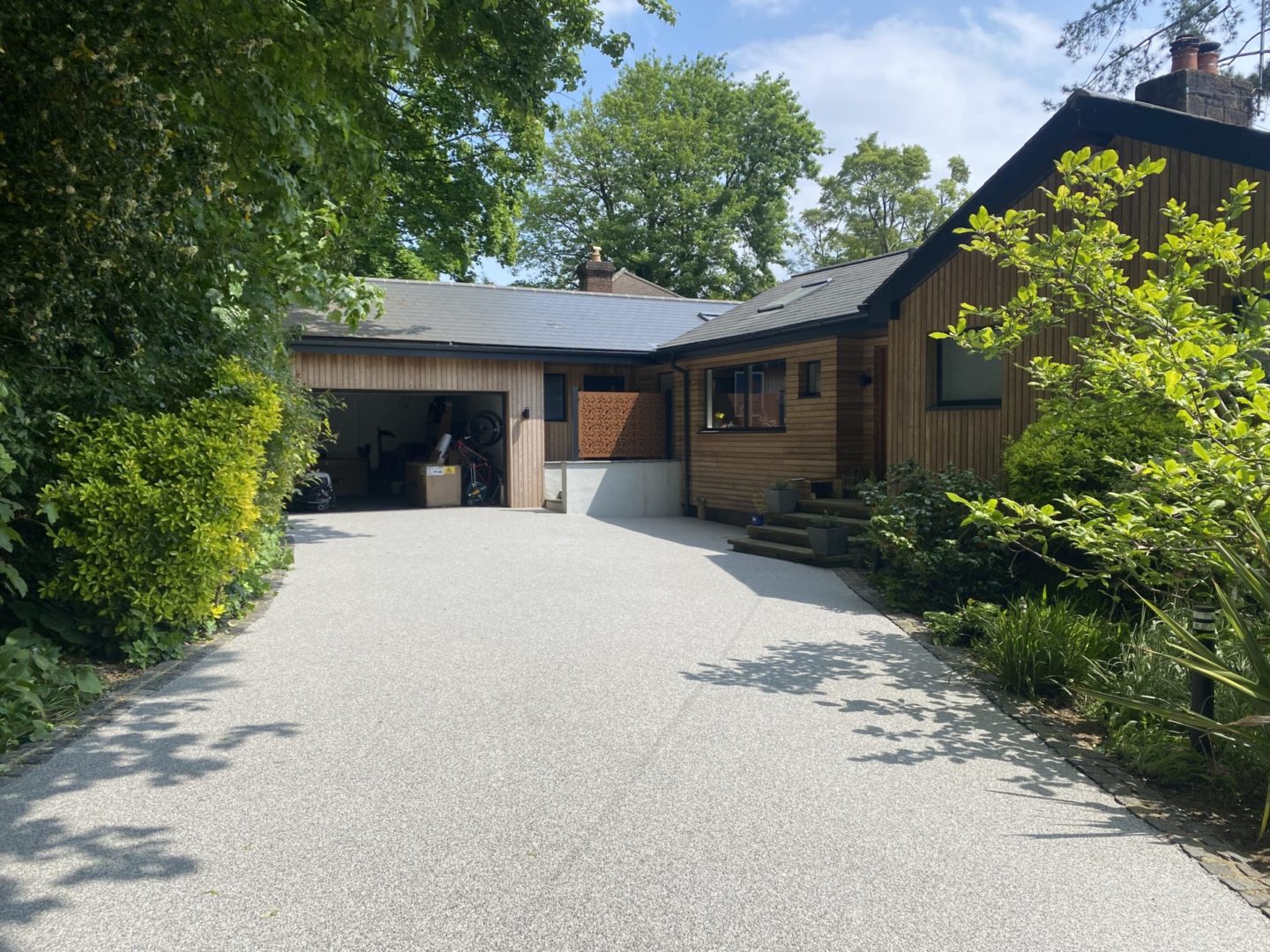
Durability and maintenance
Gravel driveways:
Gravel driveways are known for their durability and low maintenance. The stones are naturally resistant to cracking and can withstand heavy loads without significant damage. However, gravel driveways need regular maintenance to ensure the driveway remains in good condition. This includes occasional re-levelling, weed control, and replenishing the gravel to fill in any gaps or depressions. Gravel can easily become rutted or ridged if not regularly re-levelled.
You should also bear in mind that gravel is more difficult to blow autumn leaves off, or to clear snow from. And weeds can be quite aggressive if you don’t lay the right base, or keep on top of maintenance.
Resin-bound driveways:
Resin-bound driveways are highly durable and require minimal maintenance. The solid surface is resistant to cracking, UV damage, and oil stains. Additionally, the resin layer prevents weed growth, reducing the need for herbicides. Regular cleaning with a pressure washer and occasional reapplication of a protective sealant is typically sufficient to maintain the driveway's appearance and longevity.
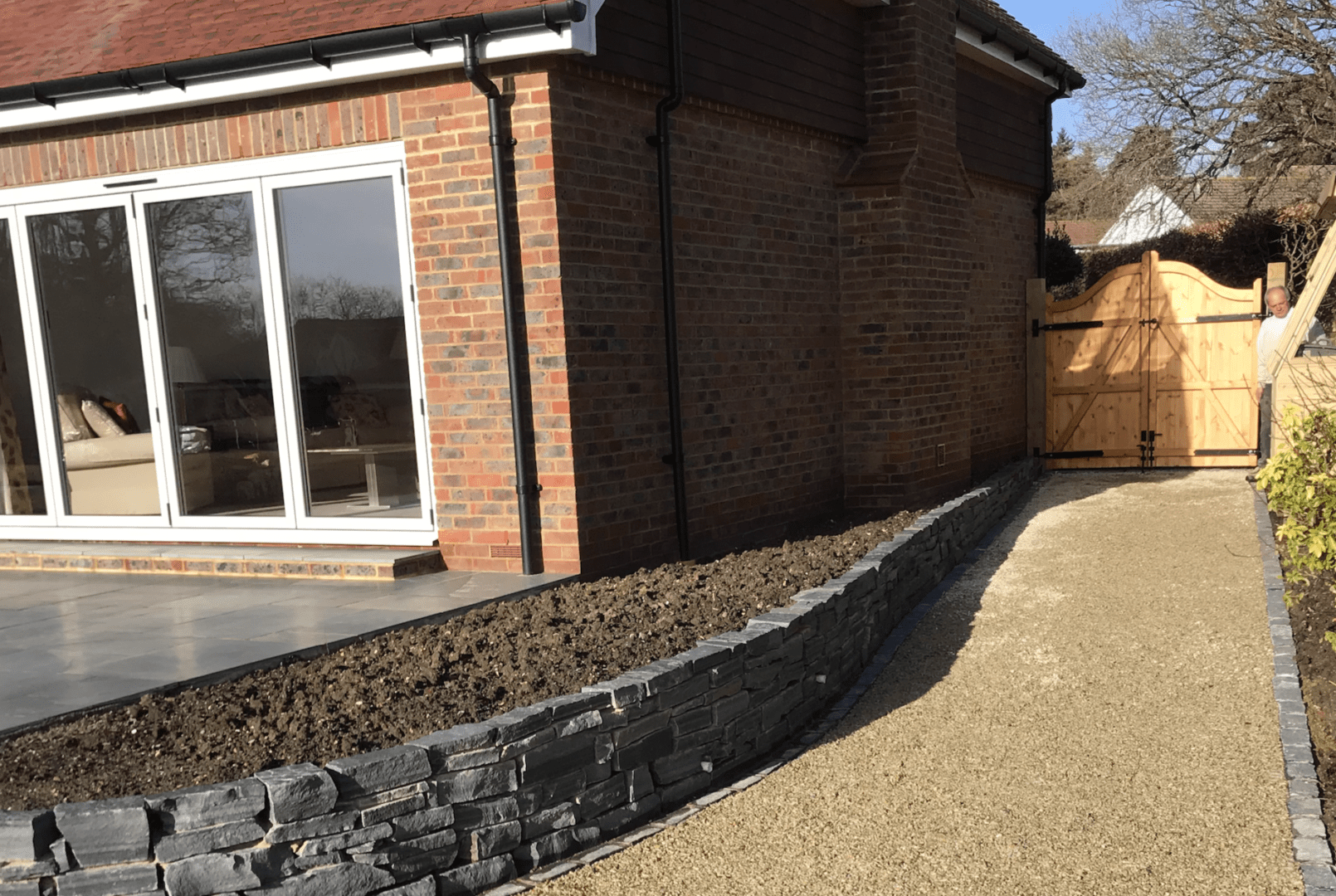
Safety and accessibility
Gravel driveways:
Gravel driveways provide good traction, particularly when compared to smooth concrete or asphalt surfaces. The uneven texture of the stones offers improved grip, reducing the risk of slips and falls. However, gravel can migrate or scatter over time, requiring periodic raking and maintenance.
The loose stones may also pose a challenge for wheelchair users or people with mobility issues. Stabilisation grids have been developed in recent years to help overcome this issue. The grids help to keep the gravel in place and stabilise the surface for wheelchairs, prams and other small apparatus. They can be used with gravel made of stones up to 14mm. However, if you wish to use larger stones in your project, stabilisation grids won’t be suitable.
Resin-bound driveways:
Resin-bound driveways offer a smooth and even surface, making them ideal for accessibility. The absence of loose stones ensures easy navigation for pedestrians, bicycles, and mobility devices. The level finish also eliminates trip hazards and gives a stable base for walking or driving, even in wet conditions.
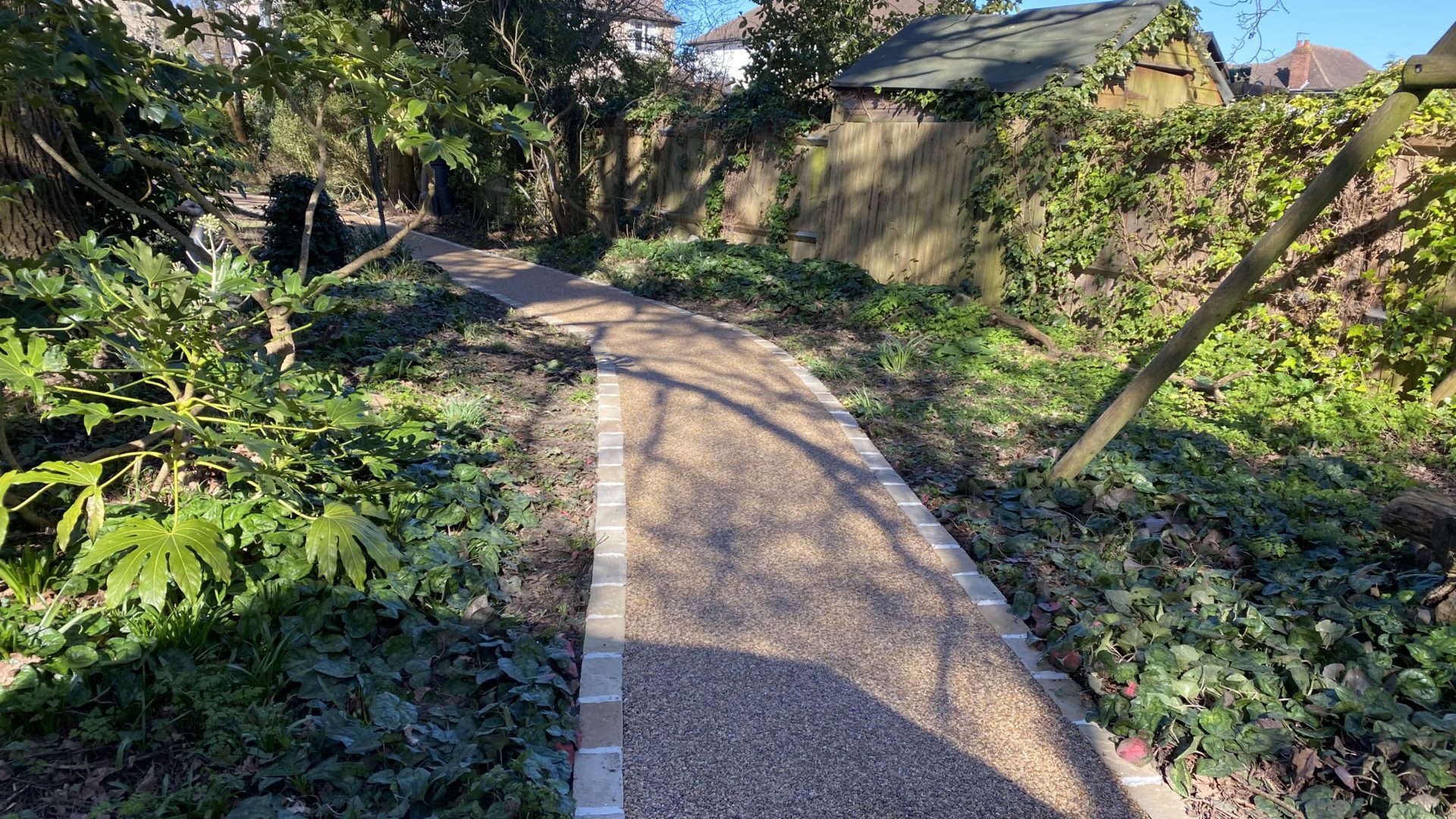
Environmental considerations
Gravel driveways:
Gravel driveways have minimal impact on the environment as they are made of natural materials. They allow water to drain naturally, as gravel is a permeable surface, reducing the risk of water pooling and localised flooding.
Gravel can also be a good choice if you need to install a surface around trees. The movement of the stones, which can sometimes be a problem if it migrates too much, is a benefit when you need flexibility around tree roots. Because the gravel moves easily, you won’t need to worry about roots warping your driveway.
Resin-bound driveways:
Resin-bound driveways are also environmentally friendly. The permeable surface allows rainwater to drain through, reducing the risk of surface water runoff and flooding. This helps to maintain the natural water cycle and prevent water pollution. Moreover, the resin used in these driveways is non-toxic, making them safe for the environment.
Cost considerations
Gravel driveways:
Gravel driveways are generally more cost-effective compared to resin-bound driveways. The materials used are readily available and less expensive. However, the overall cost can vary depending on the quality and type of gravel chosen, as well as the base on which it is laid, and the size and complexity of the driveway.
Resin-bound driveways:
Resin-bound driveways are typically more expensive to install, due to the cost of materials and professional installation. However, they need less maintenance and have a longer lifespan than gravel driveways, which can save costs over time.
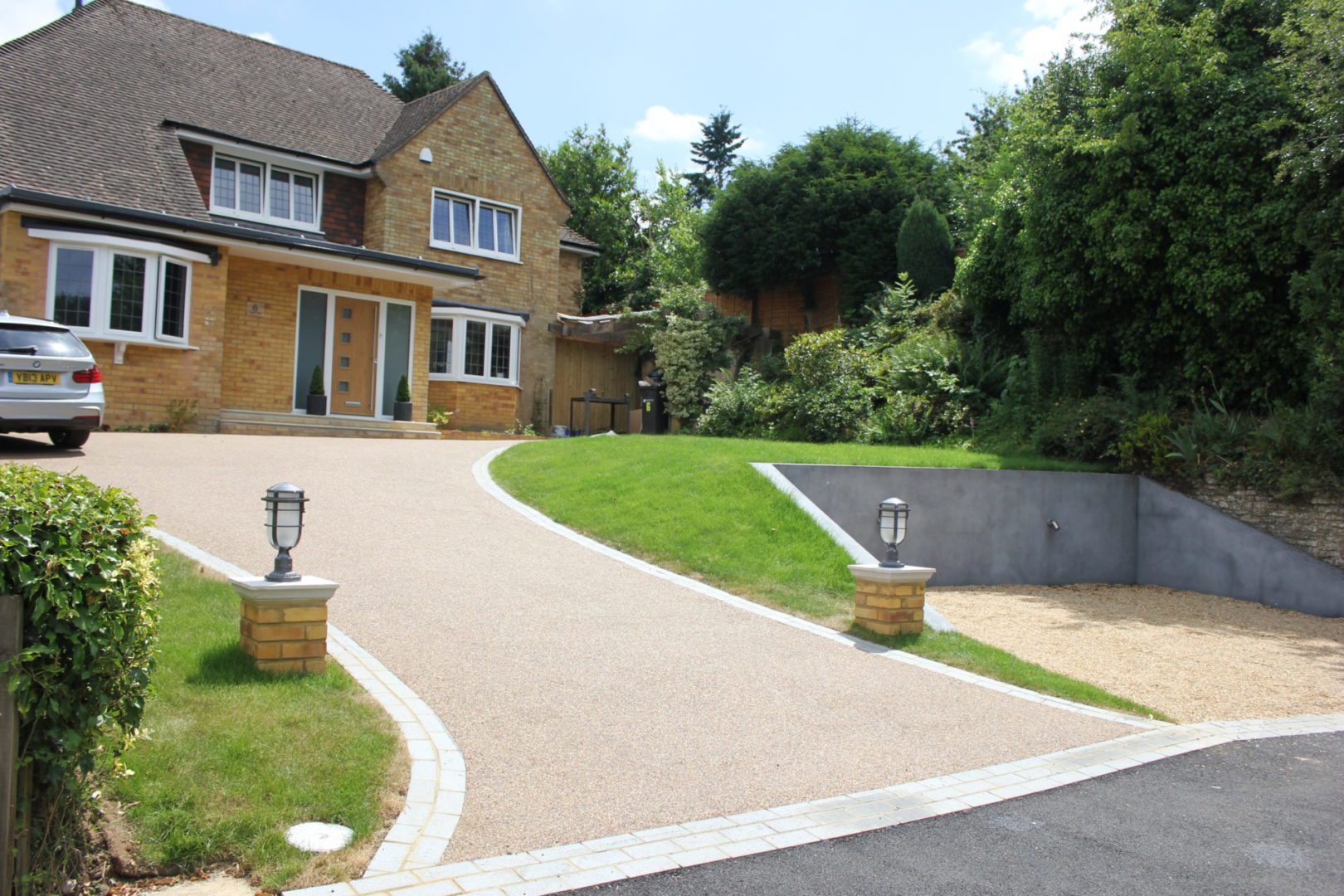
Choosing between a gravel driveway and a resin-bound driveway depends on personal preferences, budget, and the specific requirements of your property. Gravel driveways offer a rustic charm, are cost-effective, and provide good traction. However, they need regular maintenance and may not be suitable for individuals with mobility issues. You may also be put off by the tendency of the loose stones to migrate.
On the other hand, resin-bound driveways offer a modern and low-maintenance solution, ensuring a smooth and accessible surface. They are visually appealing, durable, and environmentally friendly.
Both gravel and resin-bound driveways can enhance the overall look of your home, providing a functional and inviting entrance. You’ll need to consider the aesthetic appeal, durability, maintenance requirements, accessibility, and cost factors before making your decision.
If you need some help with the gravel vs resin-bound conundrum or would like to chat about the materials once you have made your decision, please get in touch!
